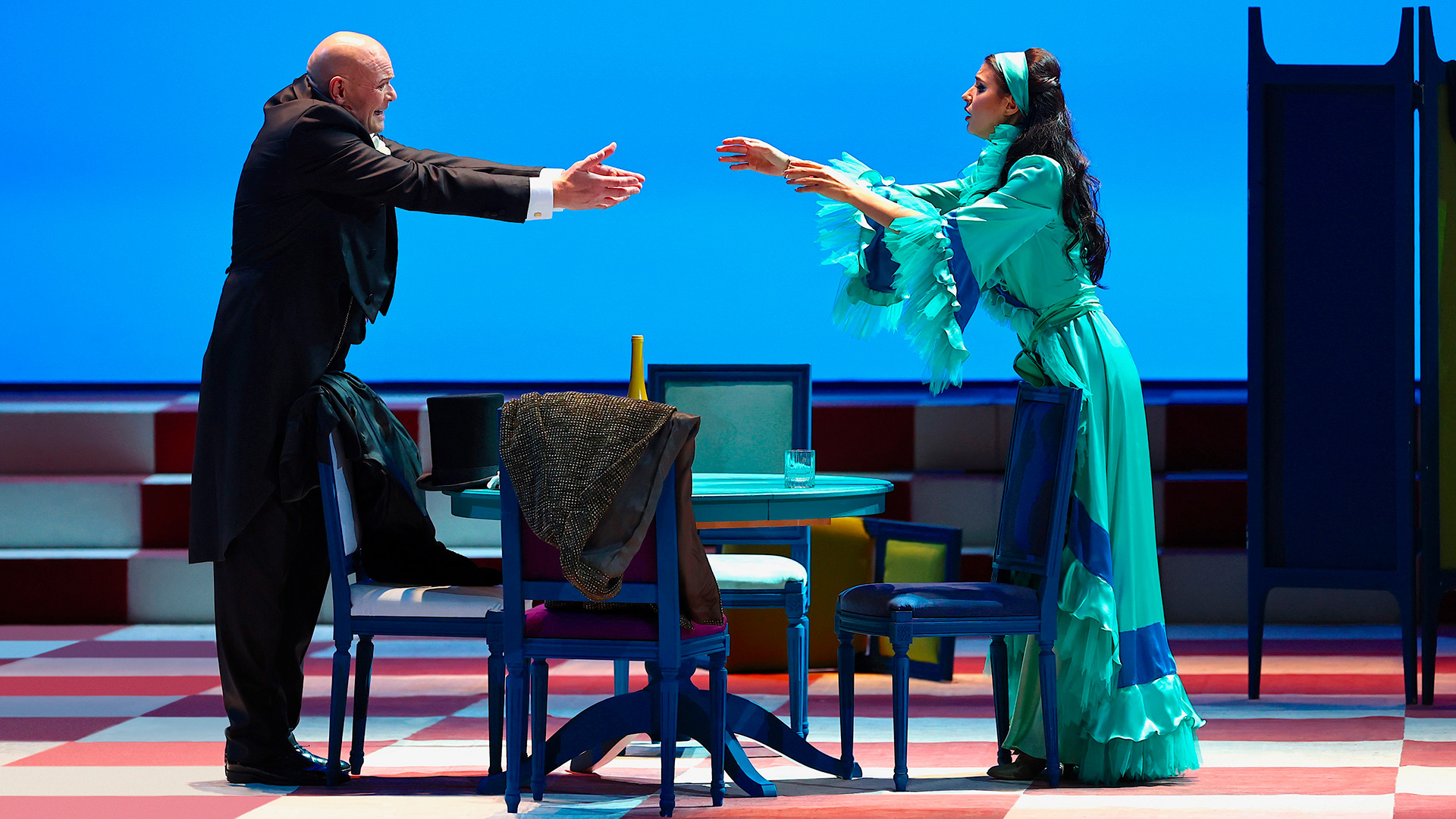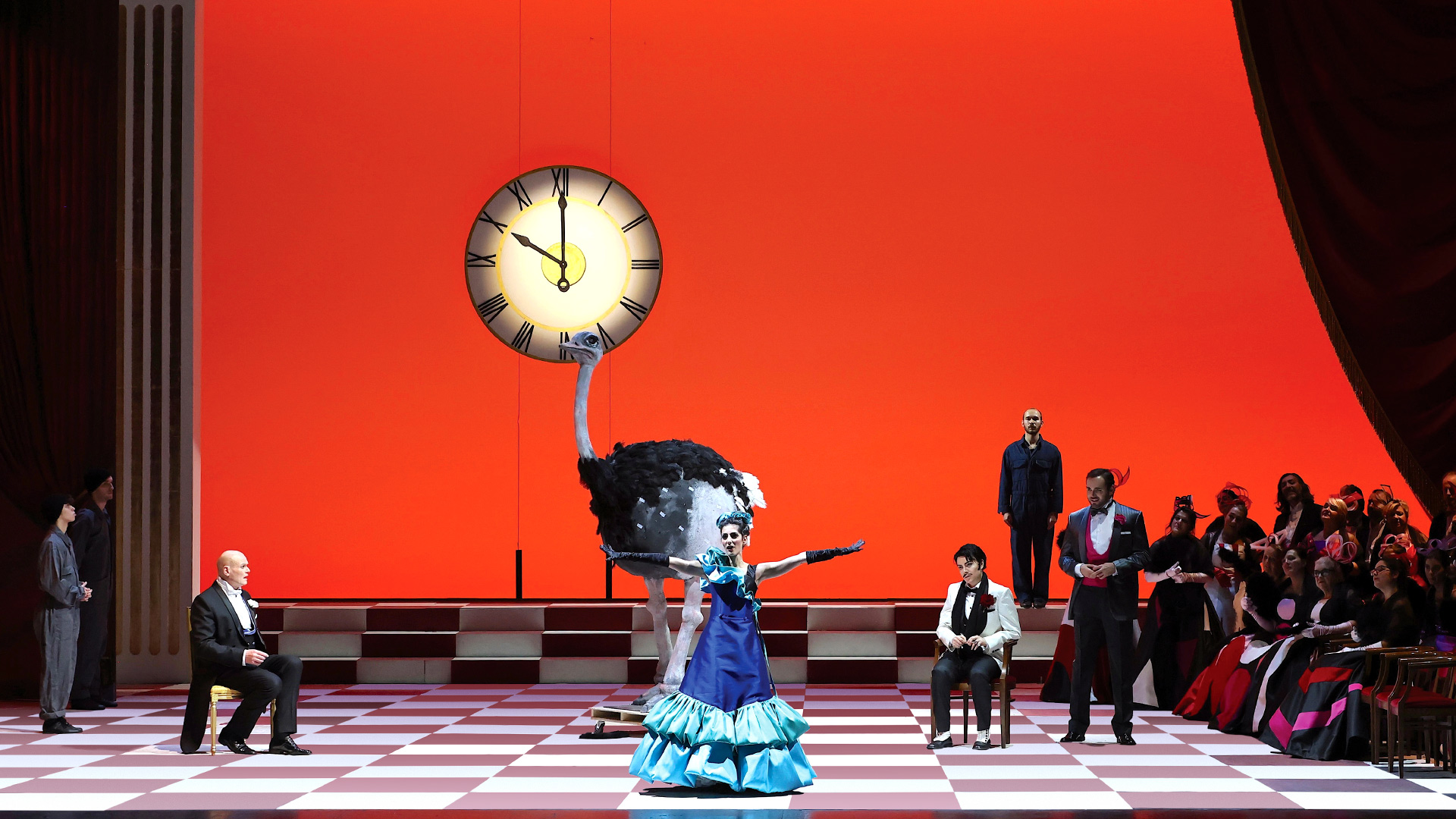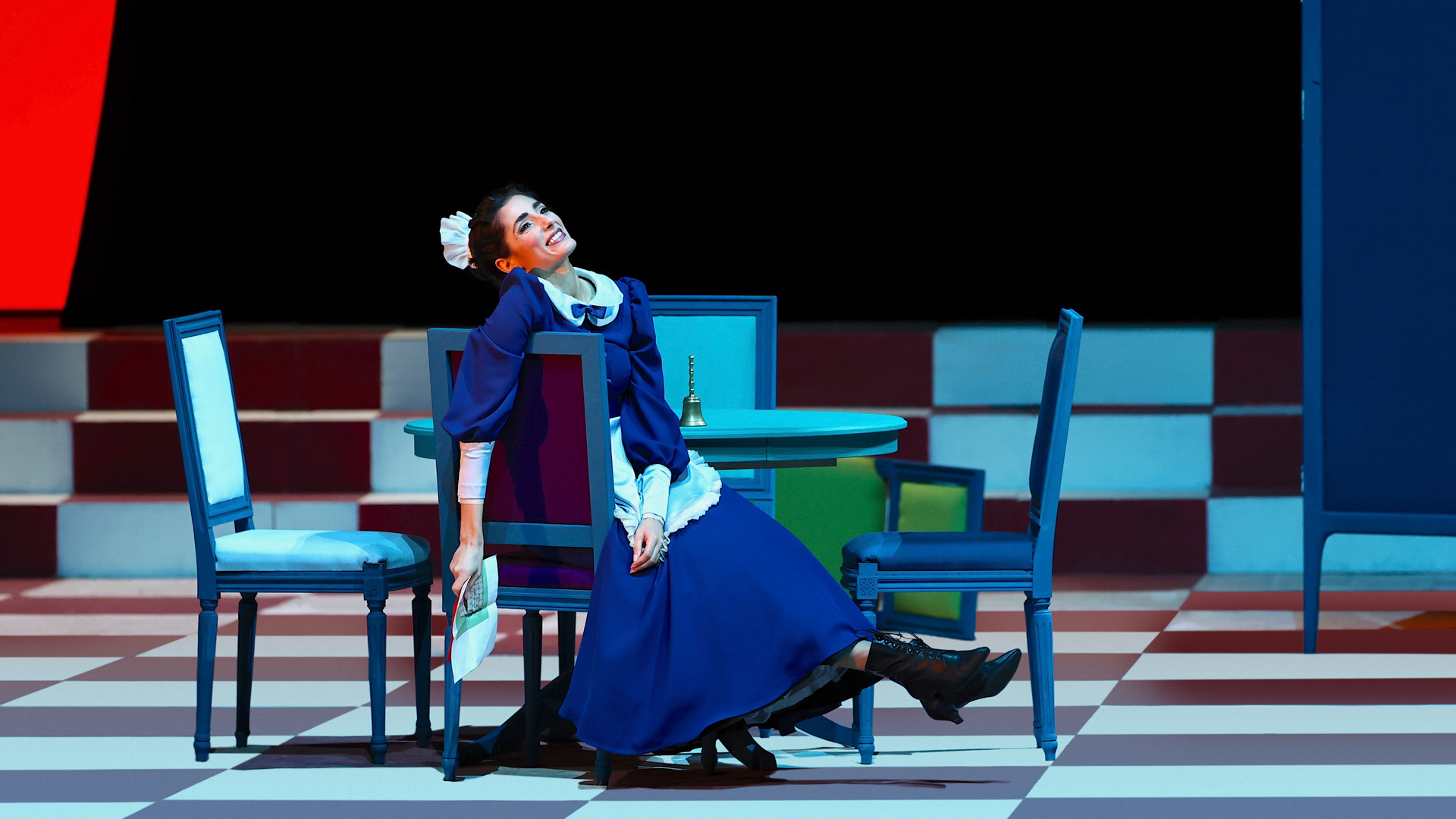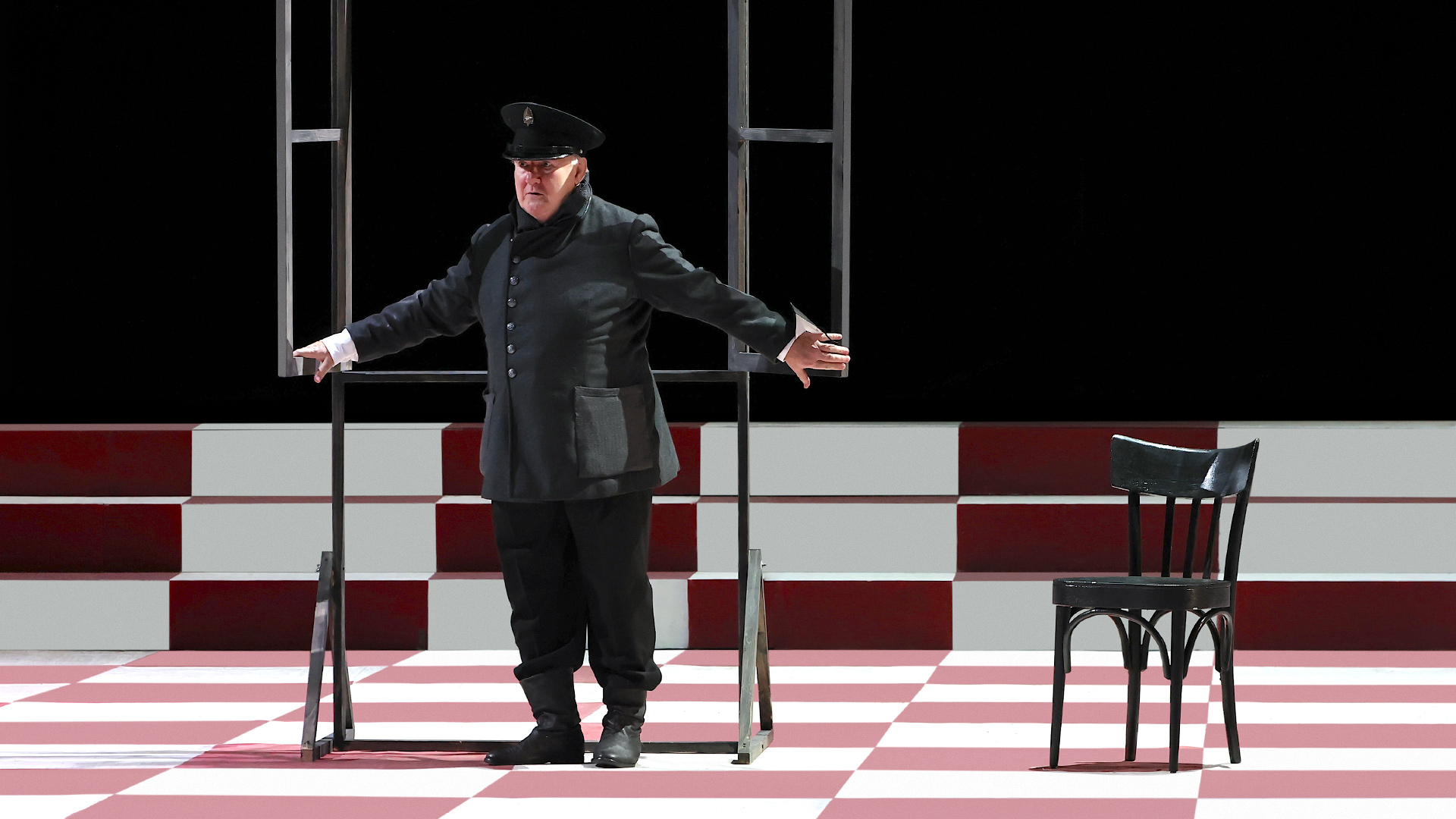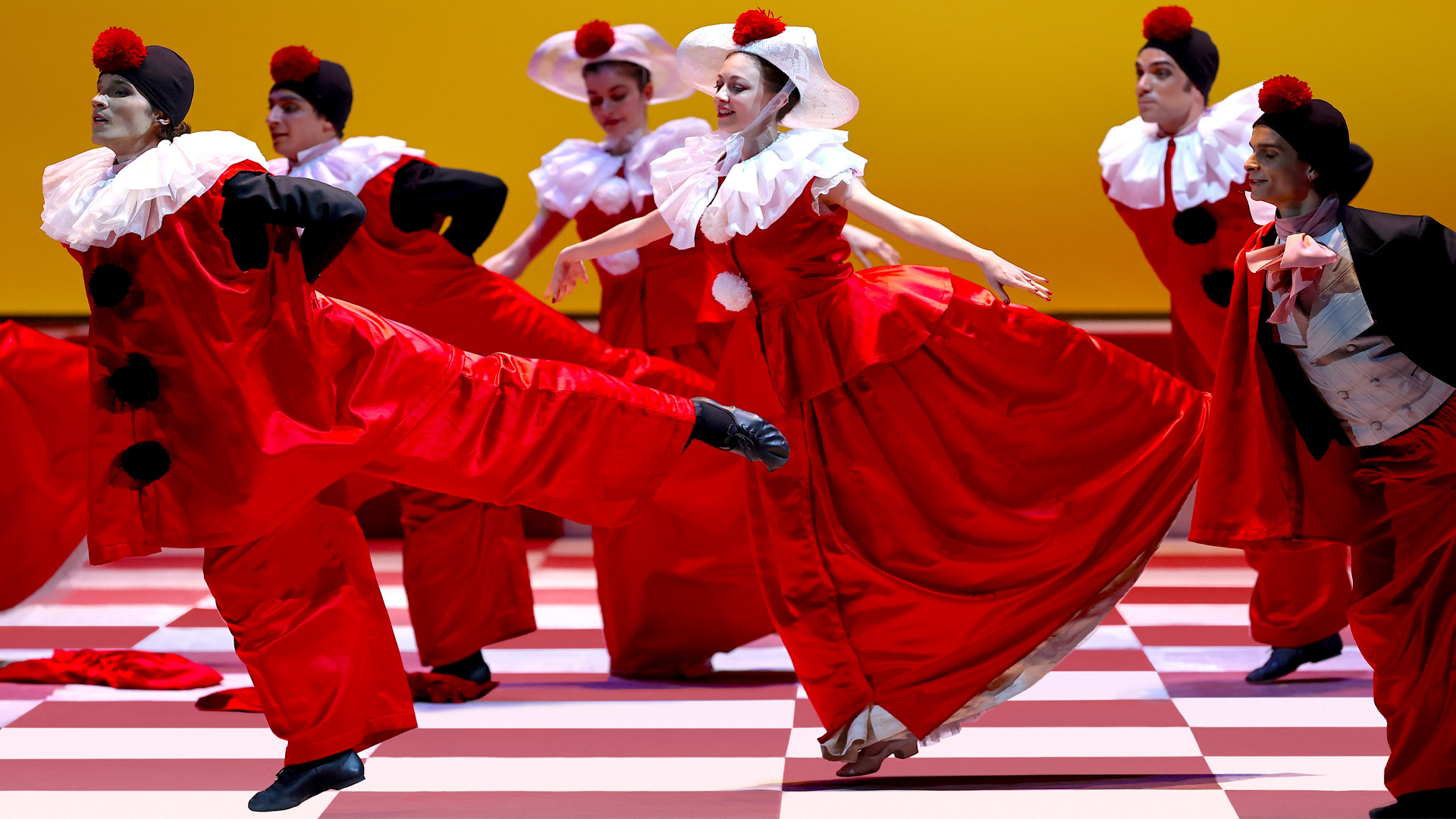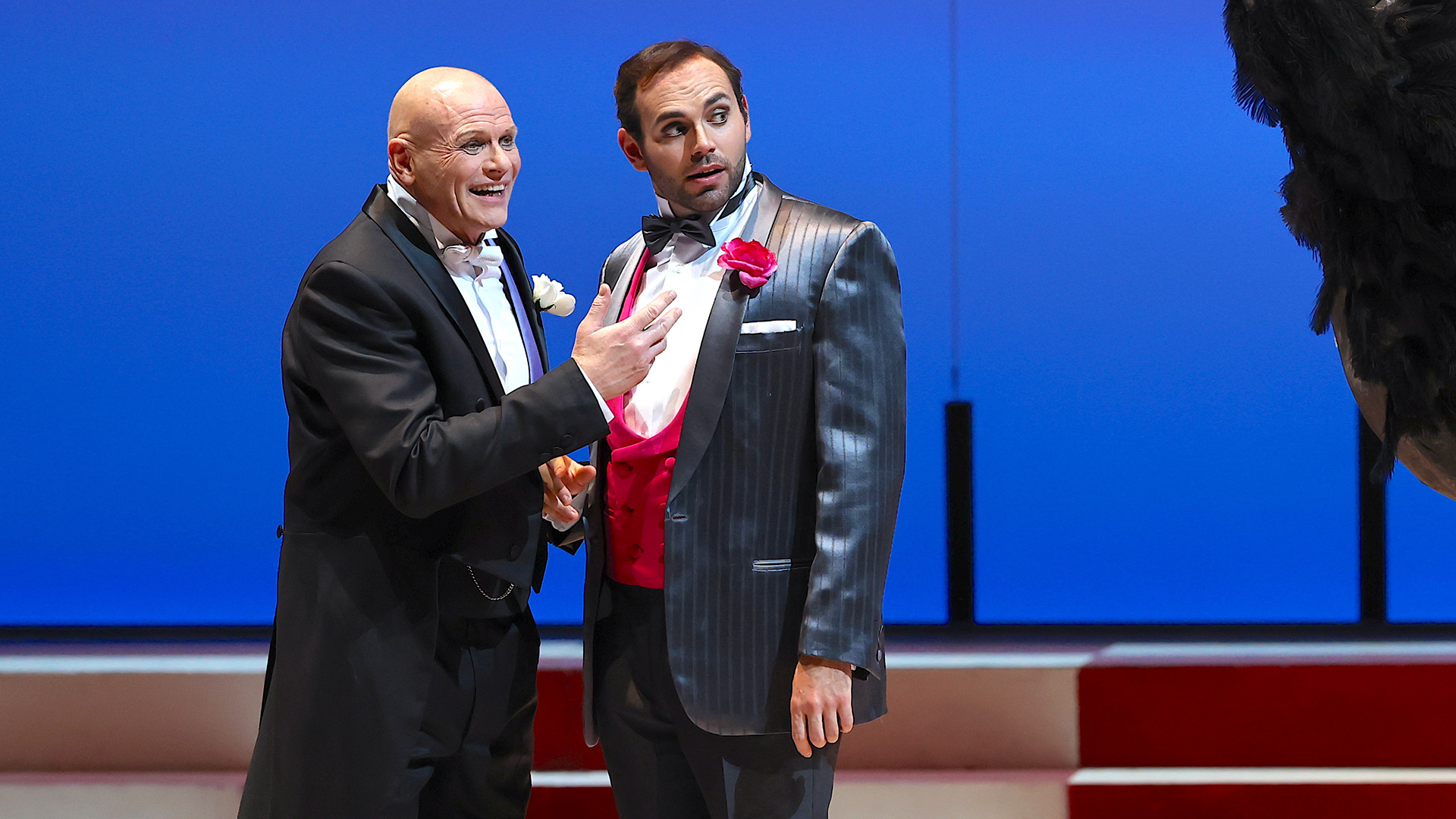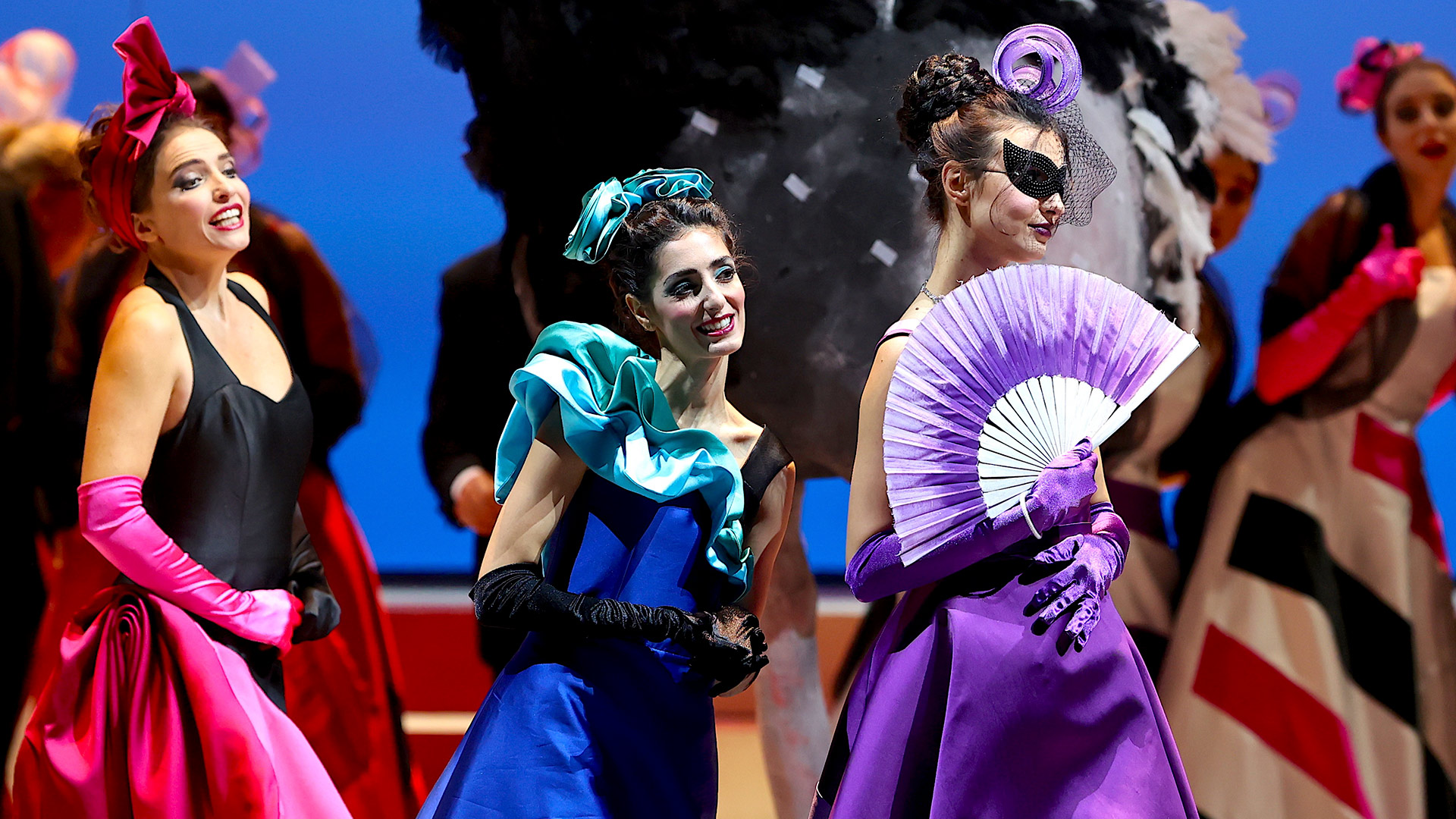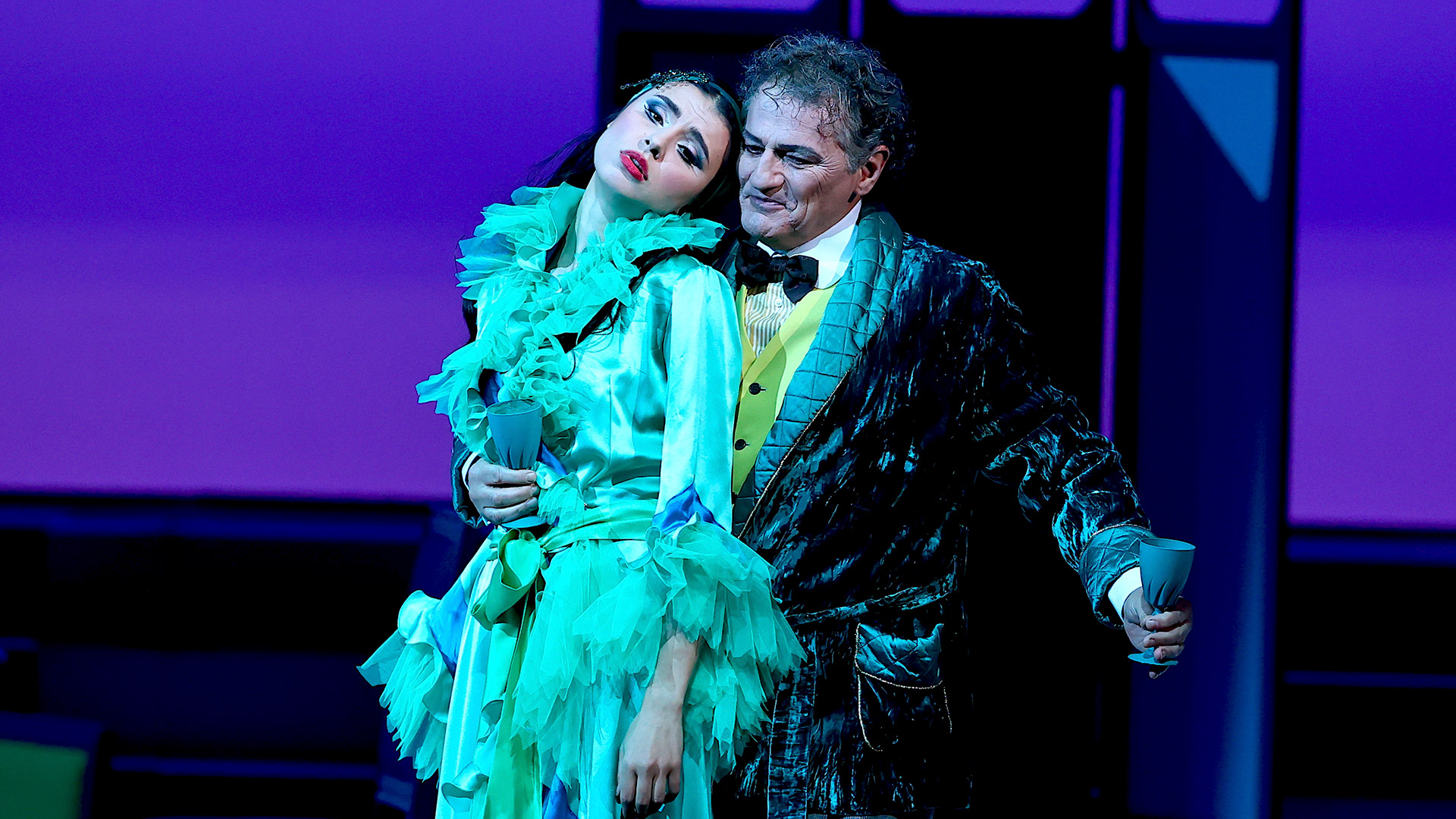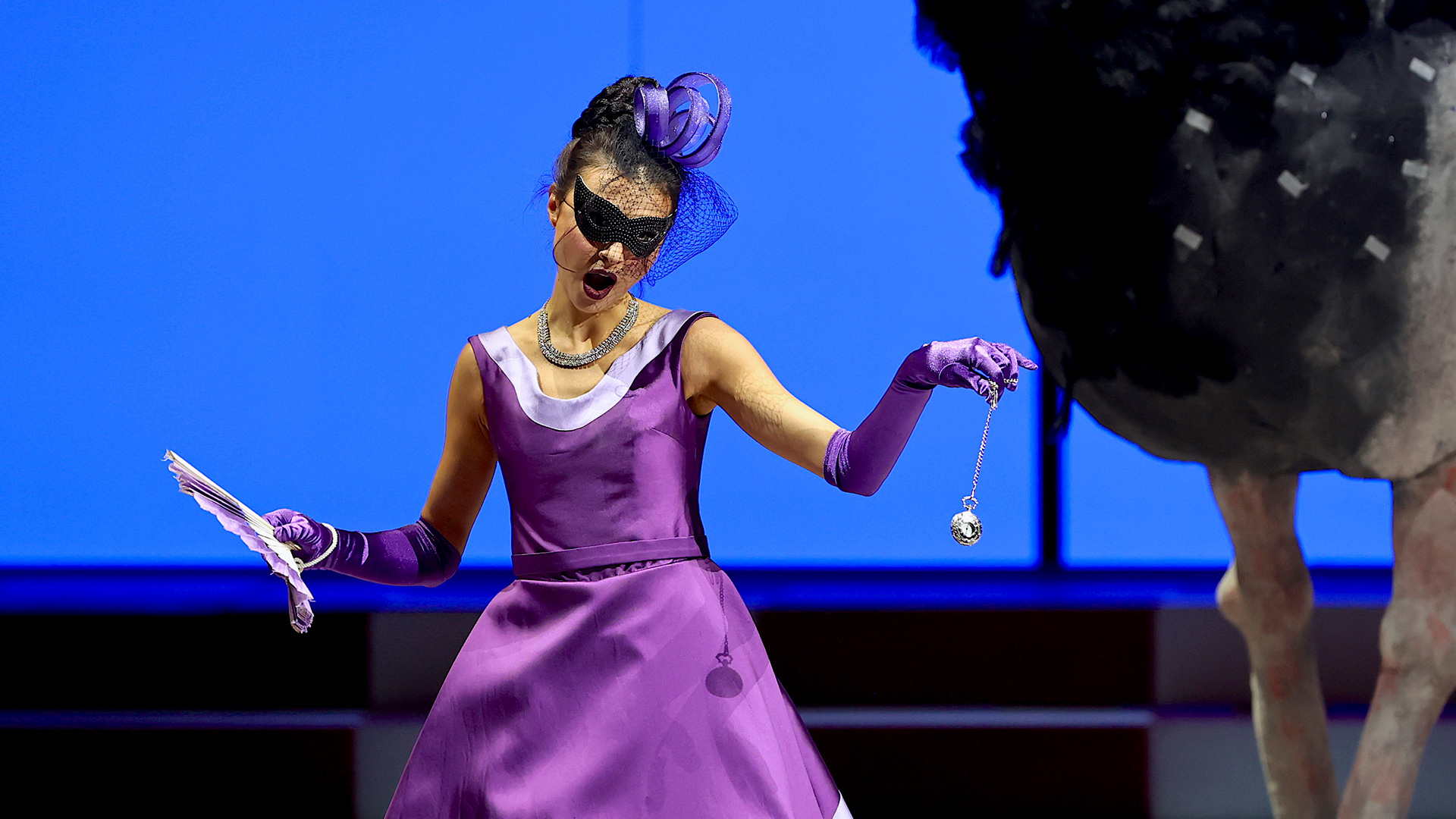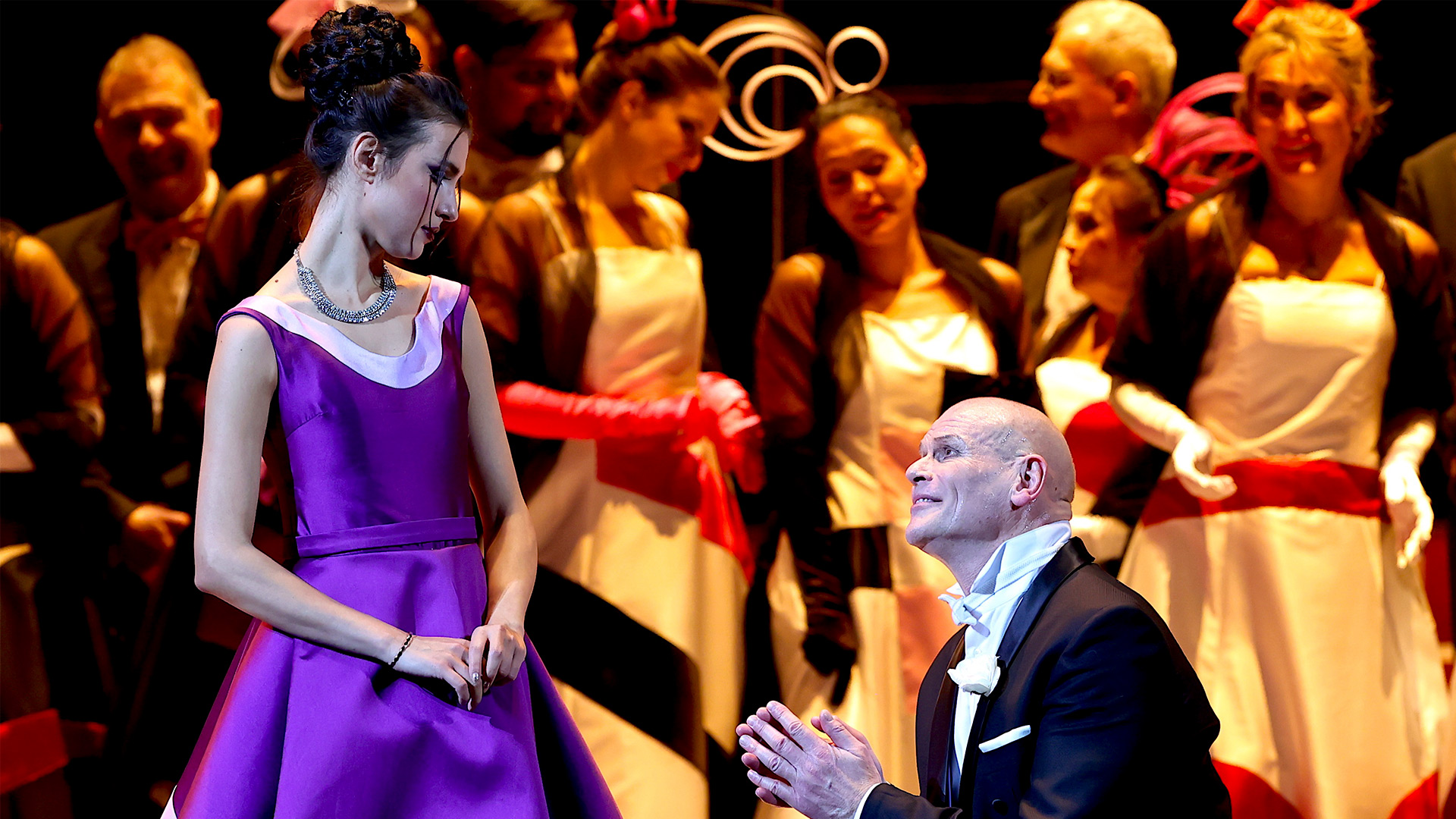Operetta in three acts
Music by Johann Strauss II
Libretto by Carl Haffner and Richard Genée, from Le réveillon di Henri Meilhac and Ludovic Halévy
PLAYBILL
Gabriel von Eisentstein
Bo Skovhus
Simon Schnorr (1, 7)
Rosalinde
Valentina Naforniţa
Valentina Farcas (1, 7)
Frank
Levent Bakirci
Prinz Orlofsky
Deniz Uzun
Caterina Piva (1, 7)
Alfred
Bernhard Berchtold
Enrico Casari (1, 7)
Dr. Falke
Liviu Holender
Dr. Blind
Benedikt Kobel
Adele
Danae Kontora
Julia Knecht (1, 7)
Ida
Alena Sautier
Frosch
Udo Samel
Conductor
and orchestrator
Fabio Luisi
Director
Cesare Lievi
Scenic and costume design
Luigi Perego
Choreographer
Irina Kashkova
Lighting designer
Luigi Saccomandi
New staging by
Fondazione Teatro Carlo Felice di Genova
co-produced with
Fondazione Teatro Comunale di Bologna
Orchestra, chorus and Technicians
of Opera Carlo Felice Genova
chorusmaster
Claudio Marino Moretti
Ballet Training Foundation
Dance and Entertainment “For Dance” ETS
Original language with Italian surtitles
Photographs by Marcello Orselli from stage rehearsals
TITLE SPONSOR
Staging director
Luciano Novelli
Stage musical director
Paloma Brito
Répétiteurs
Sirio Restani, Antonella Poli
Stage musical assistants
Andrea Gastaldo, Anna Maria Pascarella
Other Choir Master
Patrizia Priarone
Lighting Master
Cristina Battistella
Supertitle Master
Simone Giusto
Assistant Conductor
Michael Zlabinger
Head of musical archives
Simone Brizio
Scenic director
Alessandro Pastorino
Vice scenic director
Giorgio Agostini
Consolle supervisor
Andrea Musenich
Stage technicians foreman
Gianni Cois
Electrician foreman
Daniele Malcontenti
Tooling foreman
Tiziano Baradel
Audio/video foreman
Walter Ivaldi
Head of tailoring, shoemaking,
make-up and wigs
Elena Pirino
Director’s assistant
Mirko Rizzi
Scene Assistant
Luca Filaci
Make-up and hair co-ordinator
Raul Ivaldi
Scenic designer
Opera 7
Equipment
Opera 7, Opera Carlo Felice
Costume designer
D’Inzillo, Opera Carlo Felice
Footwear
Epoca
Wigs
Mario Audello
Supertitles
Prescott Studio
The opera in brief
by Ludovica Gelpi
The story of Die Fledermaus (The Bat) begins in Vienna in 1874. Theatre impresarios were looking for people who could boost ticket sales, the city’s economy was still in dire straits following the disastrous stock market crash the year before. Precisely because of this, Max Steiner, co-director of the Theater an der Wien, commissioned Carl Haffner to translate the highly successful French play Le Réveillon, by Henri Meilhac and Ludovic Halévy. The play, translated by Haffner and rewritten in the form of a three-act libretto by Richard Genée, with the title Doktor Fledermaus, pleased Johann Strauss, who decided to set it to music and finished the composition in just over a month, in March 1874. The first performance of Die Fledermaus took place at the Theater an der Wien on 5 April, followed by numerous revivals throughout Europe and overseas.
Operetta is by nature a genre focused on liveliness and entertainment. Many musical references converge in the Fledermaus, first and foremost the waltz, a genre consecrated in Vienna by Johann Strauss’s own father of the same name, but also Italian arias, national styles, folklore, polkas, with dances and recited parts. Several pieces, precisely because of their great versatility were later rearranged as compositions for orchestra, which were also highly appreciated in concert halls. The bourgeois subject – in which the Viennese public could easily mirror itself – is portrayed comically with great irony, but not without those characteristic traits of hedonism and disenchantment of the society of the time emerging clearly. The plot unfolds between salons and masquerade parties, love intrigues and rivalries, disguises, adulteries, misunderstandings and champagne.
Also thanks to the Fledermaus, which to this day is a widely performed and appreciated title throughout the world, the operetta genre, which originated in France, achieved great fortune, becoming a cornerstone of Central European music between the 19th and 20th centuries.
